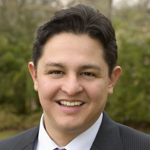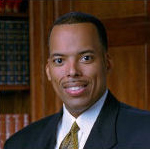We’ll start with now-former Judge Elizabeth Coker:
An East Texas state district judge who had been accused of sending text messages to coach a prosecutor during a trial, being biased against some attorneys and improperly meeting with jurors has resigned as part of an agreement with a state judicial commission.
Elizabeth E. Coker did not admit to guilt or fault as part of her agreement with the State Commission on Judicial Conduct. The commission announced Monday that Coker had taken an immediate leave of absence and her resignation will take effect Dec. 6. The agreement also prevents her from ever being a judge again in Texas.
Coker had been a judge since 1998. She oversaw proceedings in Polk, San Jacinto and Trinity counties. Her father and grandfather had also been judges who presided over the same counties.
[…]
The commission said that during an August 2012 child abuse trial Coker presided over, the judge sent text messages to Polk County prosecutor Kaycee Jones, suggesting questions that Jones should relay to the prosecutor handling the case.
Coker was also accused of suggesting that a witness review a videotaped interview he gave to law enforcement to refresh his memory and rehabilitate his testimony and of discussing legal issues pertinent to the case “in an unsuccessful effort to assist the State (to) obtain a guilty verdict in the case.”
The defendant ended up being acquitted of a felony charge of injury to a child.
The commission also alleged Coker might have engaged in other improper communications and meetings with Jones and other prosecutors in Polk and San Jacinto counties and certain defense attorneys regarding pending cases in her courtroom.
“Judge Coker allegedly exhibited a bias in favor or certain attorneys and a prejudice against others in both her judicial rulings and her court appointment; and Judge Coker allegedly met with jurors in an inappropriate manner, outside the presence of counsel, while the jurors were deliberating in one or more criminal trials,” the commission said.
In addition, the commission alleged Coker “may not have been candid and truthful” in testimony before the panel about whether she tried to influence the testimony of a witness who spoke to the commission.
That’s quite the sorry litany of bad judicial behavior. About the only thing I can think of that she could have done to make it worse would have been to bet on the outcome of the cases before her. Personally, I think she got off too lightly – I think disbarment would have been a fitting punishment. But at least she’ll never don the robes again.
The prosecutor Coker texted is now herself a judge, and is facing her own inquiry for her role in that incident.
While the state judicial commission’s investigation into alleged improprieties by State District Judge Elizabeth Coker ended Monday with her resignation, the focus may now shift to any possible complicity by fellow judge and former prosecutor, Kaycee Jones.
Coker’s voluntary agreement to resign alludes to complaints that she “engaged in improper ex parte text communications with Jones,” who served as a Polk County assistant district attorney for 10 years until this year becoming the 411th state district judge.
On Tuesday, Jones could not be reached for comment. But in a previously written letter to the Texas Bar Association’s disciplinary counsel, Jones said that during her tenure as prosecutor she improperly utilized clandestine text messages sent from the bench by Coker.
Jones acknowledged passing along the texts, designed to bolster the prosecution’s case, to the lead prosecutor during a child abuse trial. “It was wrong and I knew better,” she wrote.
Jones’ name was prominently mentioned three times in Coker’s resignation agreement. The signed document refers to the so-called “texting and judging” incident as well as allegations of other improper communiques and meetings between Jones and Coker involving additional cases that were not specified.
Apparently, her boss at the time in the DA’s office made her promise to never do it again, but that ain’t good enough. Jones’ formal hearing is in March, but honestly, unless she has something better to say for herself, she should just save us all the time and trouble and submit her resignation. I don’t see how she can be trusted as a judge given her appallingly bad judgment.
Those two are known to be bad apples. Here in Harris County, we have an accusation of bad behavior against a Family Court judge.
State District Court Judge Denise Pratt is under investigation, accused of backdating court records to make it appear that she issued rulings and filed court documents sooner than she actually did, according to county officials.
Allegations against the 311th family court judge, raised by a Houston-area family lawyer in a criminal complaint filed with the Harris County District Attorney’s Office and the State Commission on Judicial Conduct, already have led to the resignation of Pratt’s court clerk.
Webster-based family lawyer Greg Enos, whose criminal complaint last year against a Galveston County court-at-law judge sparked an investigation by the state attorney general and multiple indictments that led to the judge’s suspension and subsequent resignation, said he delivered his complaint against Pratt to First Assistant District Attorney Belinda Hill on Monday. Enos said he believes the office has already launched an investigation.
A spokesman for the district attorney’s office said he “can’t confirm or deny” whether any investigation is underway, but county and other sources say the office is looking into it and already has contacted attorneys to arrange interviews.
The concerns Enos is raising also have touched off an investigation by the Harris County District Clerk, the official keeper of all court records.
District Clerk Chris Daniel said he looked into two of the six cases Enos included in his complaint, which led to the resignation on Monday of Pratt’s lead clerk, a well-liked, 25-year employee of the District Clerk’s office.
Daniel said he found records were postdated or mis-marked in those two cases, and that he is looking into a seventh one that another family lawyer brought to his attention.
An inaccurate timestamp or missing signature on a court document not only erodes “the integrity of the record,” Daniel said, but can have an impact on appeals and other legal processes.
“If you have the wrong date on a document, then statutorily you can run out of time to appeal a case, and that’s where the most damage is,” he said.
[…]
Several lawyers involved in the cases Enos cites in his complaint said they never have experienced such problems with a judge.
Marcia Zimmerman, a 30-year veteran family lawyer based in Clear Lake, said she resorted to filing a motion after waiting for months on a ruling from Pratt. When the ruling finally came in, she was surprised to see the date listed was months before she had filed her motion.
“I don’t think any of us believed the ruling was actually made before the petition for writ of mandamus because, why would she rule and not tell anybody?” Zimmerman said, noting that Pratt also missed two scheduled hearings.
Family lawyer Robert Clark said he had a similar experience, arguing a case in January and then waiting five months for a ruling from Pratt that the official court record now says was issued on Jan. 30, the day before the two-day trial actually ended.
“The thing is, it’s had a seriously adverse affect on the child in this case and my client,” Clark said. “This is just egregious.”
The DA’s office doesn’t comment on these matters so we don’t know for sure what’s going on with Judge Pratt, but the main charges against her are serious and could lead to a felony arrest if there’s sufficient evidence to bear them out. As things stand now, she would be up for re-election in 2014, though as was the case with our old buddy Chuck Rosenthal, whose name was dropped at the end of the story, she might come under pressure from the local GOP to not file. The filing deadline in December 9, and I daresay that regardless of what is being said officially about her case, we’ll have a pretty good idea of whether or not she’s in real trouble by then.




























